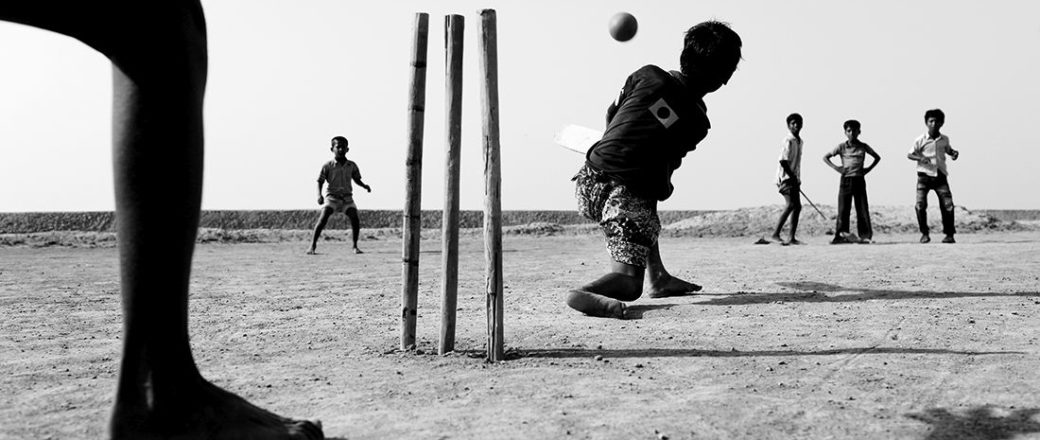Global warming seems to have more severe impact on certain countries than others because of the way it affects the world climate. An immediate effect of global warming is the increased natural disasters like storm surge and flood, while sea level rise is a slow, yet inevitable process. Bangladesh, the largest delta of the world is an obvious victim of global warming. An increase in natural disasters like cyclone and oceanic tidal waves are affecting the coastal area of Bangladesh. The coastal lowlands of this country are inhabited by millions of people who, ironically, are dependent on the sea for their livelihood. Thus, Bangladesh is one of the scapegoats of climate change, a direct function of global warming.
Low lying coastal areas of Bangladesh are speculated to be submerged due to sea level rise as the world temperature continues to go up. This situation is worsened by immediate natural calamities like cyclones and tidal floods. Two recent cyclones, Sidr (2007) and Aila (2009) totally devastated the coastal territory of Satkhira, Barguna, Patuakhali, Khulna, and Bagerhat. Gabura, a region adjacent to Sundarbans of Satkhira district, stands as the epitome of how dreadful the effects of climate change could be. The storm wiped away natural resources and shelters, leaving many people homeless.
It is never too late to take the proper action. A significant number of national and international policies must be directed towards mitigating the effects of climate change on the lives of the people. Small countries like Bangladesh must be provided with adequate international support so that they can rehabilitate the affected people and protect their coastal resources. Otherwise, an ominous change in the landscape of human civilization will be inevitable.
‘Salt’ was the Black & White Photojournalism Series of the Year 1st place Winner in the MonoVisions Photography Awards 2019.
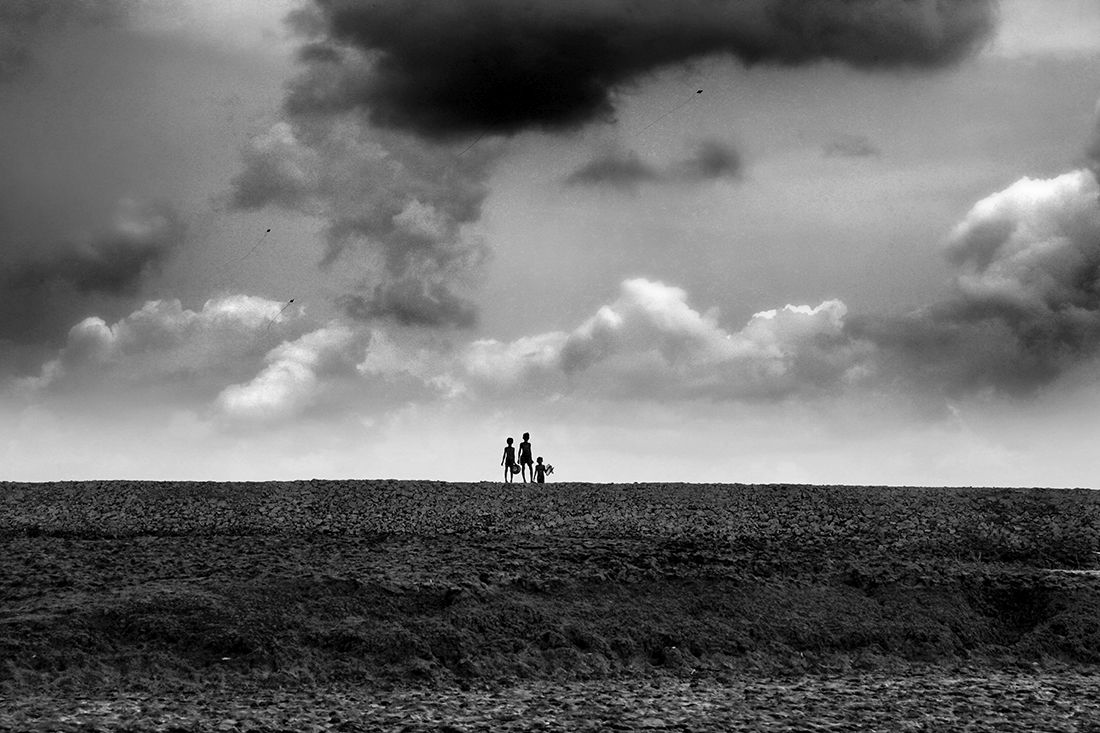
Gabura, a union of Satkhira District is comprised of twelve villages and an island near to the main land. About 35 thousand people live here. This area was washed out by the cyclone “Aila” in the year 2009. Hundreds of people drowned and died in the water. Survivors took immediate shelters. Some went to the nearest cyclone center. And the others went to their roofs and trees. For about two years after the cyclone, thousands of people had to stay and live on the embankment. © Mohammad Rakibul Hasan: Salt / MonoVisions Photography Awards 2019 winner
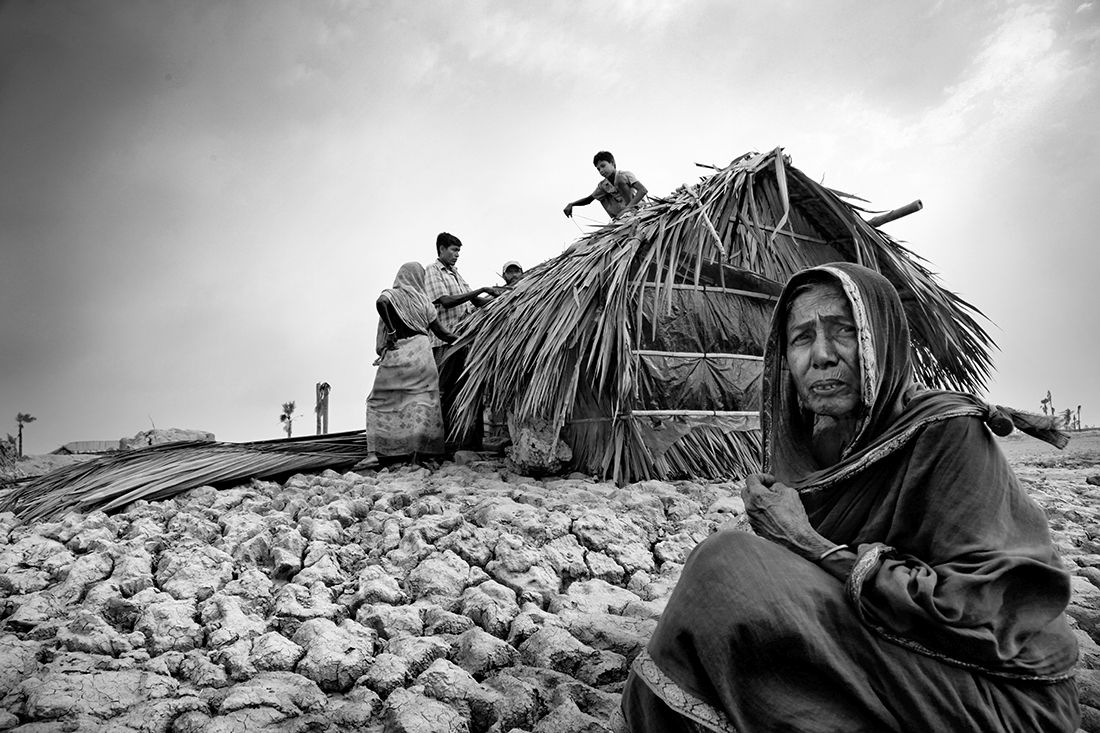
Hazera Khatun witnessed many cyclones and is traumatized. She was taken to a cyclone shelter by her son at the time of cyclone Aila. Her family later lived on the water and rebuilt their house using leaves stripped from the forest. © Mohammad Rakibul Hasan: Salt / MonoVisions Photography Awards 2019 winner
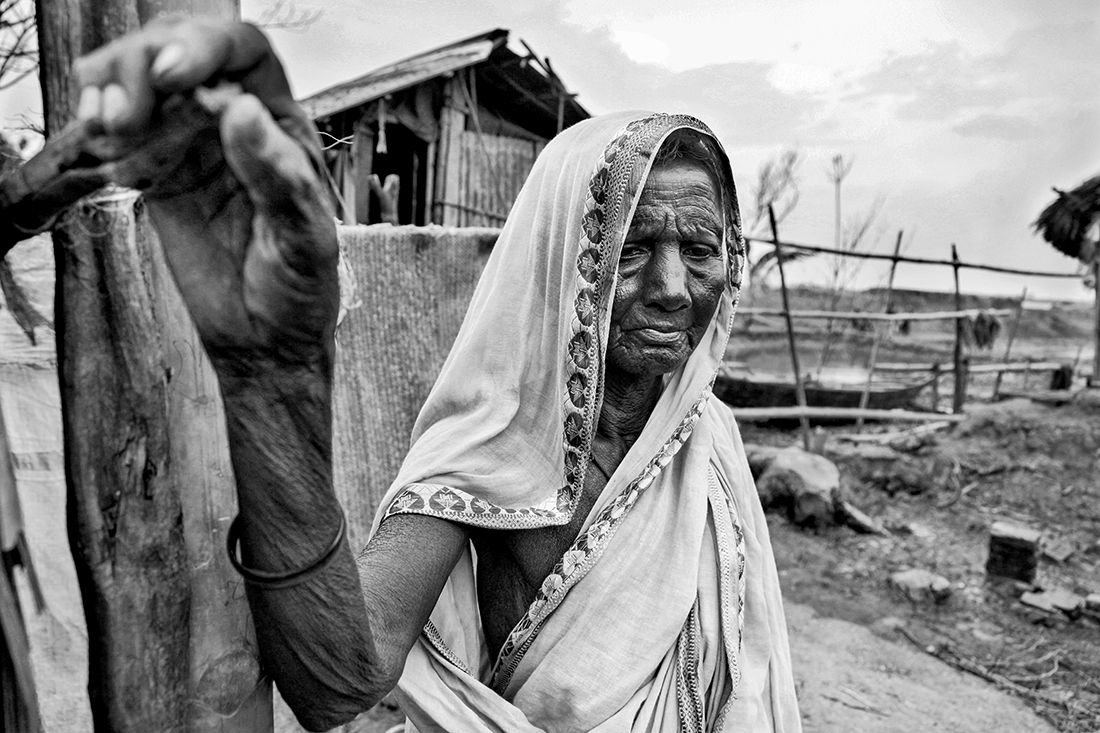
Women in the developing countries like Bangladesh mostly live under poverty and natural disasters. These are making them more vulnerable, affecting their livelihoods and security. © Mohammad Rakibul Hasan: Salt / MonoVisions Photography Awards 2019 winner

Government forest department issues license and mawalis have to pay a certain amount of money. The Sundarbans are surrounded by many groups of pirates who also demand a fee per head to enter the forest. Tiger is another life threat for mawalis, every year a large number of people get eaten by tigers. © Mohammad Rakibul Hasan: Salt / MonoVisions Photography Awards 2019 winner
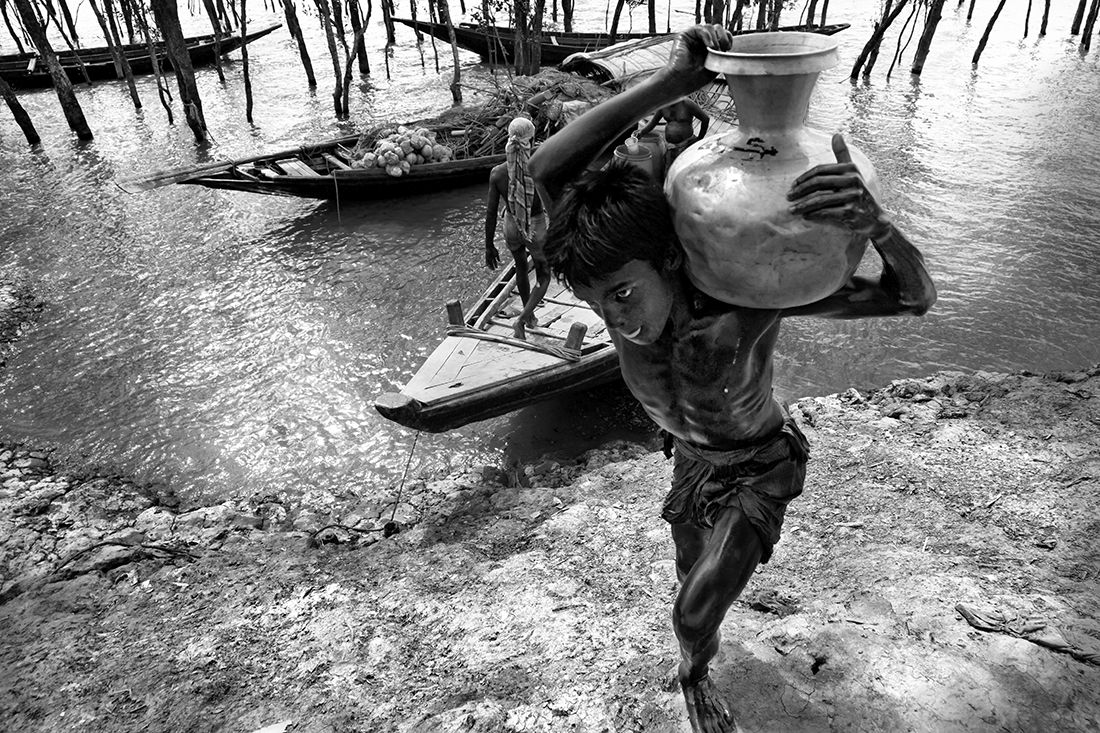
Much of the flood damage caused by Cyclone Aila was to the water and sanitation systems on which the Bangladeshi villagers depend. Floodwaters seeped into supplies used for drinking and washing, and latrines were washed away, allowing raw sewage to increase the threat to diseases such as cholera. This young boy in Gabura, one of the worst-hit villages in the Satkhira district, has access to safe drinking water – but has to cross a river to collect it. Livelihoods have also been lost: freshwater with sewage and saltwater, and seawater continues to flood farmlands at high tide two years on, making it impossible to grow crops. © Mohammad Rakibul Hasan: Salt / MonoVisions Photography Awards 2019 winner
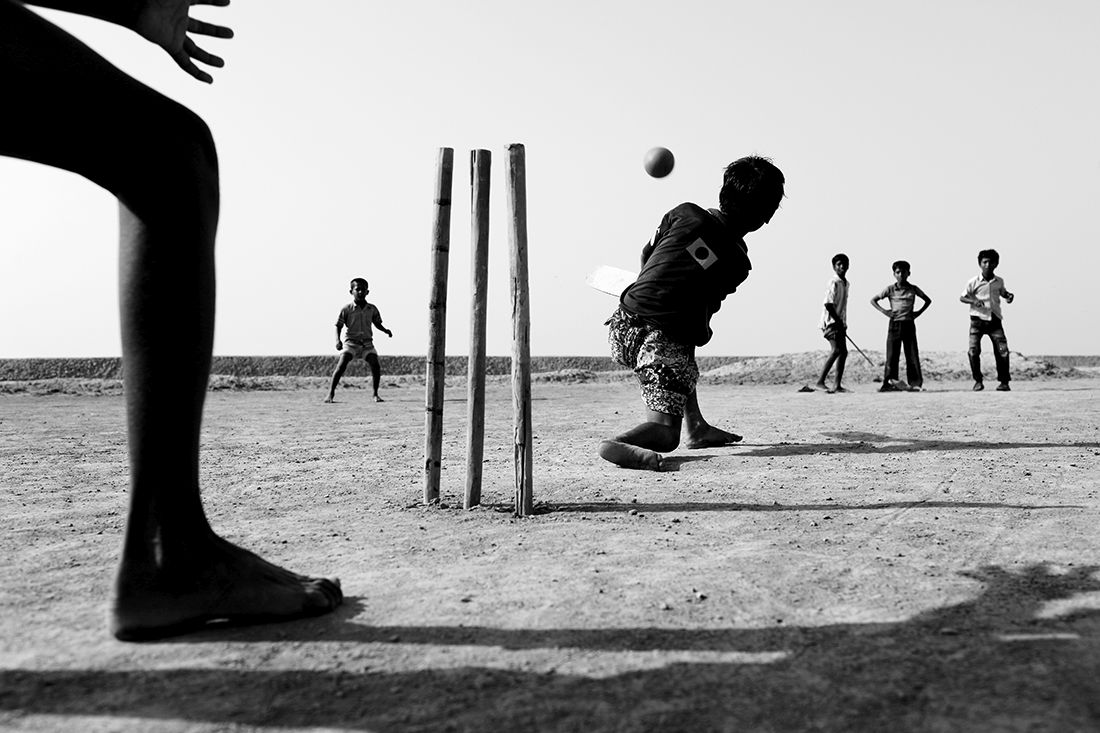
Children are playing cricket in a barren field. © Mohammad Rakibul Hasan: Salt / MonoVisions Photography Awards 2019 winner
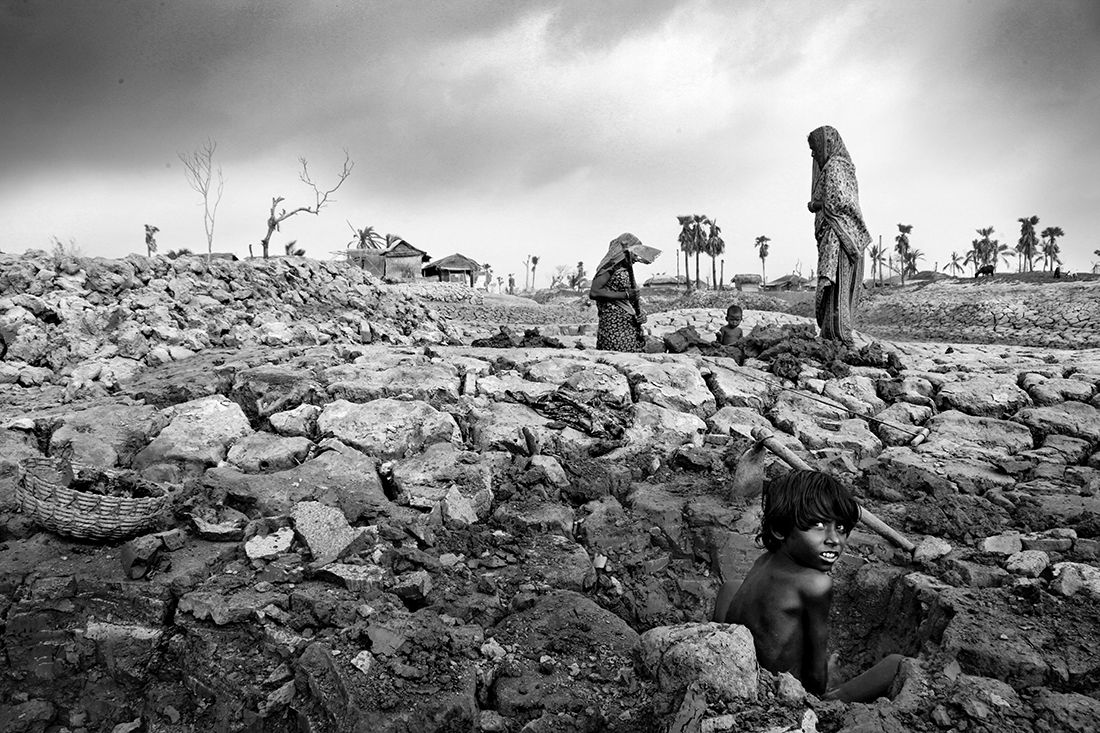
A young girl digs deep into soil saturated with salt water, hoping to find logs to burn as fuel. Two years on from Cyclone Aila, the communities along Bangladesh’s southwest coastline are starting to rebuild their lives. In the course of the cyclone, which struck in May 2009, surges of water up to three meters high battered the coast along the Bay of Bengal in Khulna district. It was already weakened by Cyclone Sidr, the worst ever in the region. Aila needed a tiny hit to destroy the defenses. © Mohammad Rakibul Hasan: Salt / MonoVisions Photography Awards 2019 winner

A climate migrant from Shyamnagar (Satkhira District) finds work as a rickshaw puller in Dhaka. Unemployment and salinity both is encouraging people to move from their usual habitat. © Mohammad Rakibul Hasan: Salt / MonoVisions Photography Awards 2019 winner
‘Salt’ was the Black & White Photojournalism Series of the Year 1st place Winner in the MonoVisions Photography Awards 2019.

